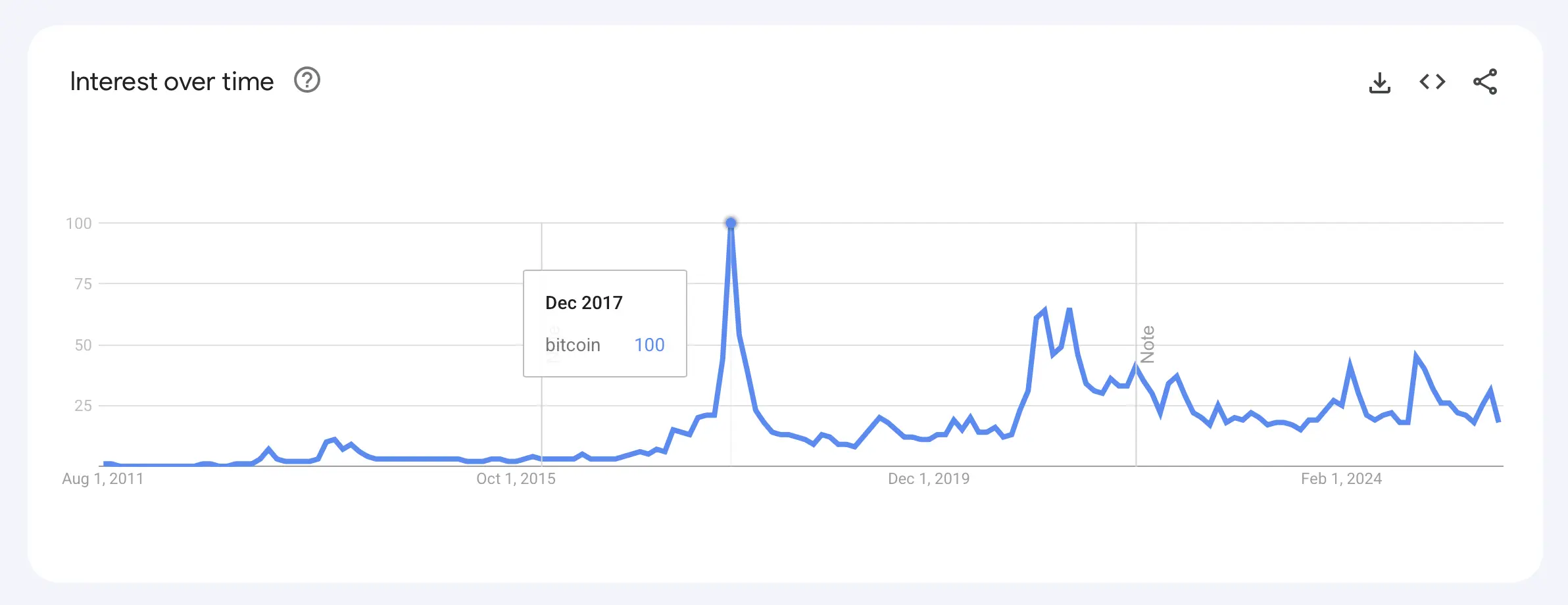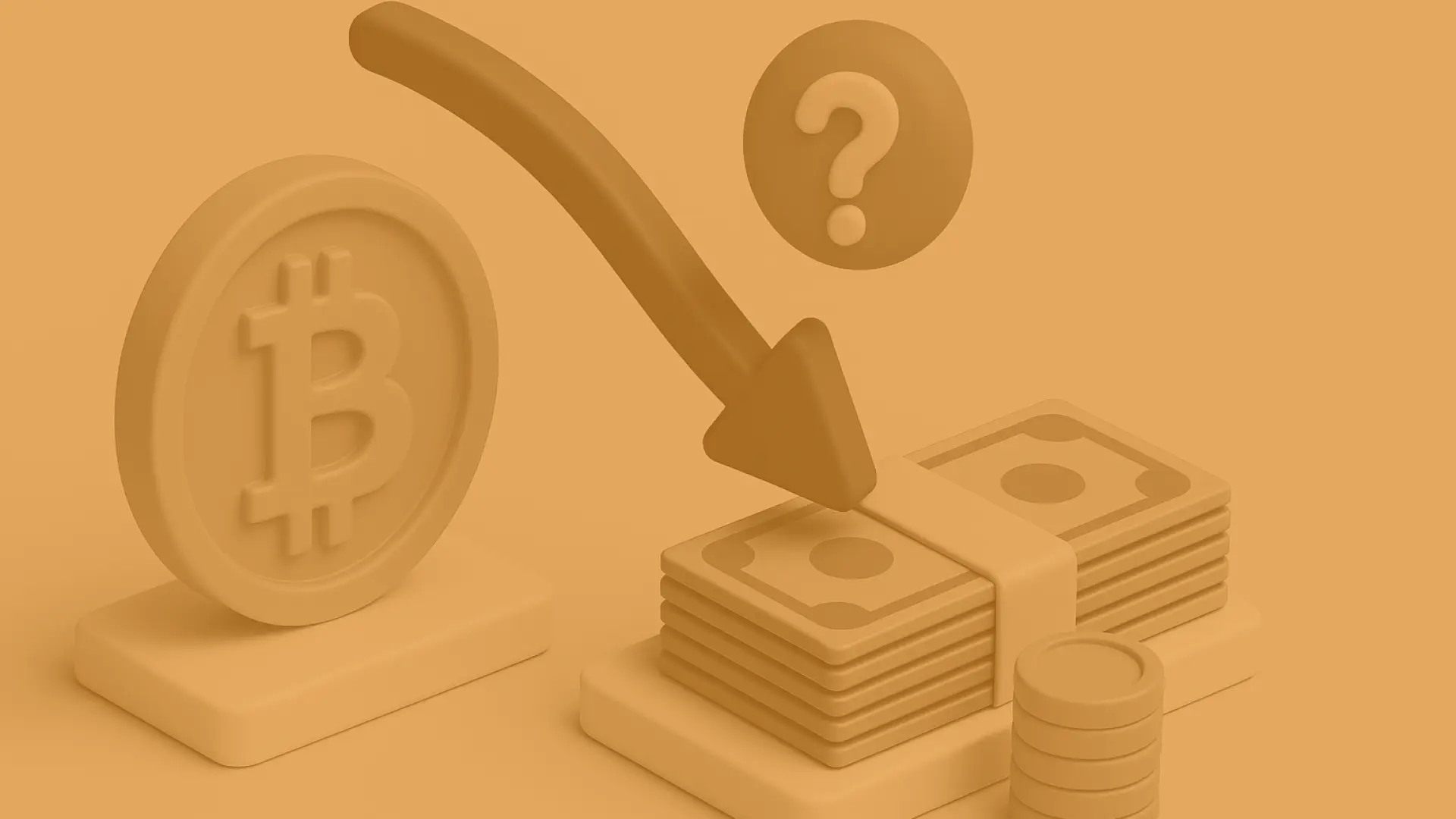"I'm never selling my Bitcoin!" is a phrase I often hear coming from self-proclaimed Bitcoin Maxis. At face value, this appears to be a perfectly justifiable statement - a guy has discovered Bitcoin, sees it as a superior "investment" with phenomenal upside potential, and has declared that he will be "diamond-handing" his Bitcoin. The problem is that - unbeknownst to himself - he is still shorting Bitcoin. Why?
I'm not talking about any investment strategies or portfolio diversifications. That's already way beyond the point. To put it simply, we all have recurring expenditures (rent, food, etc.), and if this guy is "never selling" Bitcoin to pay for his life, then he must own paper monopoly money (aka fiat shitcoins) to pay for everything, which means that he is still holding some fiat, which is effectively shorting Bitcoin.
"Come on, it's not such a big deal if I still hold a few thousand Euros for convenience," I hear you say. While this might seem like a minor issue, in this article, I will explore:
- The difference between Bitcoin being seen as an untouchable "investment" versus being used as actual money.
- How does that introduce a tangible purpose for Bitcoin and change the wider perspective in the society
- Why is that a timely issue in the world where centralised suits are gobbling up more and more Bitcoin to stay in power.
The only way to freedom is to go ALL-IN
There's a reason I described Bitcoin as being seen as an "investment" with parentheses. Investment implies some kind of return in the future based on a common denominator. Calling Bitcoin an investment is still rooted in fiat thinking of buying Bitcoin at one fiat price and selling it later at a higher fiat price, thus making a fiat return.
However, Bitcoin itself is not really an investment; it's money. Bitcoin will become that common denominator that you will eventually invest in other ventures, and against which the return will be calculated. This is not yet obvious for many, but for some it's already perceived as an inevitable future.
Those who seek freedom and recognise Bitcoin as perfect money want to save their capital exclusively in Bitcoin, including even their disposable income. Not only does this make rational sense in terms of increasing purchasing power (even on a monthly basis), but also more generally, why would you park your capital in anything that can be either inflated or confiscated away, especially when you have a solution on the table that is mathematically scarce and immutable?
Ultimately, it's a principal choice of opting out of the flawed system - taking a stance on running your life based on a secure, stable, and censorship-resistant base layer, which gives you freedom of movement, freedom of speech, simplifies your capital protection, and rewires your mindset to prioritise low-time preference.
Sell all fiat, anon.
Meanwhile, suits are gobbling up Bitcoin before your auntie
Hyperbitcoinisation is a very timely societal issue, specifically in terms of Bitcoin distribution among ordinary people before governments and corporates gobble it up for their reserves. Even though Bitcoin is, perhaps, the first opportunity that people had a chance to act on before suits, this window is closing down, as Bitcoin is already being eaten en masse by huge centralised entities in power.

Thus, we have a situation where Bitcoin is still, unfortunately, ignored by the wider public due to stigmas, negative connotations, misrepresentation of Bitcoin as an investment, or simply due to a lack of education. Meanwhile, over 17% of the Bitcoin supply is already in the hands of current power players that seek to retain that power in the new paradigm of Bitcoin, too.
On the other side, we have early Bitcoin adopters laying the foundation for P2P Bitcoin payments, but until a good portion of merchants adopt it, the "pragmatic" majority will continue ignoring Bitcoin as money, because it's not useful enough for payments. At best, some will buy it because "number go up". And that just continues perpetuating the false narrative of Bitcoin being an "investment", while the actual chasm of the full adoption curve between early adopters and early majority will remain uncrossed. The worst case scenario is that the vast majority of society will continue letting the government to erode their capital away, and will only truly consider Bitcoin when it will overcome gold.
However, there is a way to already make Bitcoin useful for that early majority and connect it with their lifestyle in this transitional period today.
How should I live on Bitcoin, if only <1% of merchants accept it?
While most Bitcoiners agree that we want to see circular economies where Bitcoin is exchanged natively and directly, the reality today is that 99%+ of merchants do not accept Bitcoin.
It's a Catch-22 dilemma: not enough merchants take Bitcoin, so people don't see Bitcoin as a means of exchange. And merchants don't accept it, at least partly because there are not enough people demanding to pay with it. On top of that, the network effect of the incumbent fiat payment rails is so deeply ingrained in the fabric of our society that it's nearly impossible to replace it.
So, what can you do if you don't want to short Bitcoin in today's world that operates in paper monopoly money?
Prioritise P2P Bitcoin payments wherever you can, but if your local coffee shop only takes card payments and your landlord Chadwick demands a wire transfer for rent, you will have to find a way to pay them in fiat.
Therefore, in order to live on Bitcoin in this transitional period before the Bitcoin standard, you need to find a way to liquidate your Bitcoin instantly at the last possible moment.
This is where wave.space comes in. We're creating tools for Bitcoiners to achieve exactly that. Let's explore a couple of typical scenarios:
How can I pay my rent with Bitcoin?
Sometimes you have to make bank transfers - whether that would be paying your landlord or extending your car insurance. Therefore, you will need some Euros in your bank account from time to time.
✅ SOLUTION: With wave.space you can sell BTC directly from your self-custodial wallet into your EUR bank account, and it lands instantly. The best part is that the incoming bank transfer will be in your own name - therefore, your bank will see it as a simple EUR transfer between yourself. The process is simple:
Send BTC to a given address or LN invoice -> BTC gets swapped to EUR automatically -> EUR is sent instantly to your own bank account
- Up to €100,000 sent instantly to your bank
- Transfer comes from vIBAN in your own name
- Simple 1% conversion fee
How can I pay online in Bitcoin? How do I buy groceries?
All you need is a widely accepted debit card that sells Bitcoin on the spot when you use the card.
✅ SOLUTION: wavecard® - the ultimate Bitcoin debit card for Europeans. With wavecard® you're spending BTC on demand, exactly when you need it, straight from your self-custody. Here's how it works:
Get your wavecard -> Link your LN wallet via NWC -> pay for anything like you're used to
- FREE unlimited virtual cards accepted at 150M+ merchants worldwide
- Pseudonymous: set any name you want for your card
- Connect with your LN wallet to spend from self-custody
- No FX fees: you get inter-bank rates
- Simple 1% BTC conversion fee, no transaction fees
Ultimately, this is the roadmap to reach the early majority
As an early adopter of Bitcoin, you have the responsibility to pave the way and set an example for others, especially as suits are doubling down already. Your task is to showcase how convenient it can be to live on Bitcoin. This is how I suggest approaching it:
- Sell all fiat. Store your BTC in self-custody. This is a principal choice of freedom.
- Pay with BTC directly wherever possible, and try to orange-pill business owners. That will speed up hyperbitcoinisation from the supply side.
- In all of those cases, where merchants (or people) do not want to take Bitcoin, pay them with a Bitcoin debit card or swap BTC directly into your bank account (sign up on https://wave.space to get these tools)
- Even if your friends & family are not 100% all-in Bitcoin, show them how convenient it is to live on Bitcoin. Onboard them, so they can try for themselves and realise that paying with Bitcoin is no different than paying with any debit card.
Ultimately, most people are seeking comfort. It is not realistic to expect them to change habits proactively before it's too late. We need to meet them where they feel comfortable and provide tools that they are familiar with.
The best part is that by the time Bitcoin network effect expands (with more merchants), the majority will already be used to paying with Bitcoin. The switch of payment rails from a Bitcoin debit card that sells BTC on the spot to a direct P2P solution will not even be noticed.
%20-%20LIGHT.png)
%20-%20LIGHT.png)

